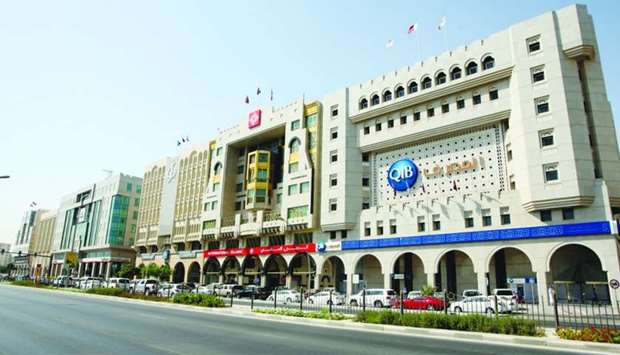Qatar’s currency regime is expected to “weather the short-term shocks” posed by the Covid-19 pandemic, although the country’s current account may move into a deficit in 2020, the Economist Intelligence Unit has said in a report.
Although export earnings are expected to fall sharply in 2020, the riyal's peg to the US dollar is backed by “healthy” foreign reserves and the QIA's assets, the EIU said, placing the currency risk as B-rated.
According to the EIU, Qatar's ability to “fully service” its debt obligations remains strong, supported by ample foreign reserves and the assets of the Qatar Investment Authority (QIA, the country's sovereign wealth fund).
In terms of Qatar’s banking sector, the EIU said the commercial banks in the country have been increasing liquidity from abroad in the form of a number of debt issues, and cash injections from the QIA have bolstered banks' liquidity. The ratio of non-performing loans as a proportion of total loans has historically been low, but it is likely to rise in the short term.
The EIU has placed the banking sector risk BB-rated. It is supported by a “robust” regulatory framework and “solid” capital and liquidity indicators.
However, the EIU noted Qatar's overdependence on hydrocarbons exports leaves it exposed to global price movements.
“In the short term, policy will continue to focus on addressing the economic fallout from the coronavirus pandemic and weak international oil prices.
“Qatar's large stock of public debt weighs on the outlook, but a sound financial system is supportive,” the EIU noted.
According to the EIU, Qatar's ability to “fully service” its debt obligations remains strong, supported by ample foreign reserves and the assets of the Qatar Investment Authority (QIA, the country's sovereign wealth fund).
In terms of Qatar’s banking sector, the EIU said the commercial banks in the country have been increasing liquidity from abroad in the form of a number of debt issues, and cash injections from the QIA have bolstered banks' liquidity. The ratio of non-performing loans as a proportion of total loans has historically been low, but it is likely to rise in the short term.
The EIU has placed the banking sector risk BB-rated. It is supported by a “robust” regulatory framework and “solid” capital and liquidity indicators.
However, the EIU noted Qatar's overdependence on hydrocarbons exports leaves it exposed to global price movements.
“In the short term, policy will continue to focus on addressing the economic fallout from the coronavirus pandemic and weak international oil prices.
“Qatar's large stock of public debt weighs on the outlook, but a sound financial system is supportive,” the EIU noted.


